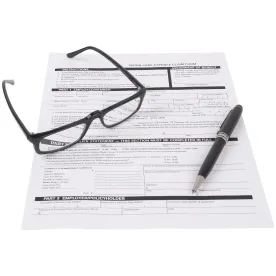Notary public malfeasance came into the public eye in the wake of the National Mortgage Settlement. The NMS alleged that the nation’s largest banks oversaw widespread improper notarizations and document-signing practices called “robo-signing.” The settlement emphasized that banks must begin to shore up their notary practices by ensuring that their notary public employees are properly supervised and trained. However, recently, the National Mortgage Settlement has cast a spotlight on law firms, particularly those that service mortgages and deal with foreclosure-related matters.
Law firms and notary employees, in particular, can prepare for increased scrutiny from state and federal regulators by adopting industry-wide best practices. Foremost on this list is the maintenance of a notary public journal. Not all states require notary journals. However, in those states that do not statutorily require them, the commissioning authority strongly recommends that they be used because they limit liability exposure. For instance, the Idaho notary handbook states that a journal is “[o]ne way of establishing evidence of the exercise of the required degree of care,” and “it could be used to relieve a notary from personal liability in a case where his or her negligence is alleged as the cause of the loss.”
The following best practices have national applications and can help reduce the liability exposure to the firm and your notary public employees. These practices are best used in collaboration with your state’s notary handbook and a notary training course.
1. Maintain a journal: After the transaction, record it. It provides clear evidence of reasonable care and establishes that you do follow the best practices of the profession.
2. Never notarize documents with blank spaces: A blank space where an interest rate or payment amount should be is potentially fraudulent. Make sure every blank is filled in when notarizing a document. If a blank space is intended in the document, ensure that you make a note in your journal.
3. Notarize for signers who are physically present: There are no exceptions to making sure the individual who is signing the document is present for the notarial act. In fact, if you follow this rule, you will significantly reduce any liability. It’s the foremost reason why notaries are sued or have their commissions revoked. Virginia is the only state that allows for remote electronic notarizations when the signer is not physically present.
4. Make sure the signing is a voluntary act: Do not pressure anyone into signing a document. The signature has to be voluntary. If it is not, the transaction could be discredited or invalidated, resulting in potential liability.
5. Know the limits of your authority: Do not give advice. The notary commission does not come with the authority to make legal recommendations or select/draft documents for clients. If the advice you give is incorrect, it can be grounds for a lawsuit.
6. Know your commission expiration date: Make sure to notarize before your commission date expires, or the document could become invalidated.
7. Thoroughly complete notary certificates: The facts you attest to as a notary are what is relied upon by third parties and, therefore, should be descriptive. At a bare minimum, these certificates should contain the venue, the names of the signing parties, the date, and an affirmation or acknowledgment statement. Many state notary handbooks offer examples of acceptable certificates.
8. Watch for loose certificates: Never mail or give a signed and sealed loose notary certificate to another individual to staple to the intended documents.
9. Keep your seal protected: Never let anyone use your seal. Keep it locked and secure when not in use. A notary seal can be used to commit a fraudulent act.
10. Obtain insurance for exceptional transactions: Consider obtaining errors and omissions (E&O) insurance. While every notarization is important, you may not always know your exposure to each one. This insurance will protect you after the notarization occurs.




 />i
/>i

